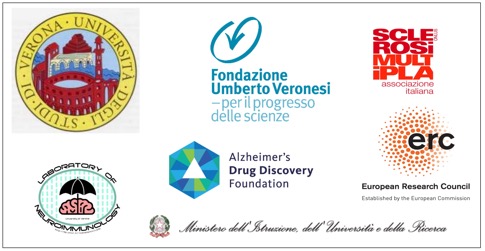In February 2003, Dr. Zenaro graduated in Biotechnology with a research project conducted in collaboration with Prof. M. Salkinoia-Salonen at the University of Helsinki and Prof. G. Vallini from the University of Verona. The project aimed to characterize phenotypically and phylogenetically a bacterial strain deemed useful for bioremediation protocols.
From 2003 to 2004, Dr. Zenaro conducted research in Switzerland under the guidance of Prof. J.R. van der Meer at the University of Lausanne. This research was part of a European project focused on creating bacterial biosensors using custom regulators.
Dr. Zenaro successfully obtained her Doctor of Philosophy in Molecular and Cellular Pathology from the University of Verona in 2009. Throughout her Doctoral program, she worked alongside Professor S. Dusi and collaborated with other laboratories on several immunity-related projects. Her research primarily focused on understanding how microbes evade the immune system, and she conducted two independent investigations on human dendritic cells in the immunological response to pathogens, resulting in significant publications. Additionally, she was part of a research project led by Professor R. Badolato that aimed to study the effectiveness of GCSF treatment in patients with severe congenital neutropenia.
Since 2009, Dr. Zenaro has had the privilege of working in the Neuro-immunology laboratory of Prof. G. Constantin, in which she has attained extensive knowledge of leukocyte trafficking in the central nervous system, as well as proficiency in advanced microscopy. During this time, she has been able to acquire a broad range of immunology principles associated with innate and acquired immunity mechanisms. Additionally, she has developed highly specialized skills with advanced microscopy techniques, which are imperative for analyzing the molecular mechanisms that govern leukocyte-endothelial interactions in both healthy and diseased states in-vivo.
Dr. Zenaro conducted independent research on the role of leukocyte trafficking mechanisms in both Alzheimer's Disease and Multiple Sclerosis murine models using a two-photon microscopy intravital microscopy setting. Additionally, she made contributions to the research on the intraparenchymal behavior of migrated leukocytes in the inflamed CNS and lymph nodes in the experimental autoimmune encephalomyelitis (EAE) model of Multiple Sclerosis.
A primary project was conducted by Dr. Zenaro to investigate the impact of innate immune cells, particularly neutrophils, on the development of neurodegeneration and cognitive impairment in animal models of Alzheimer's Disease. Her valuable contributions led to significant discoveries, which were featured in a groundbreaking publication exposing the harmful effects of neutrophils on Alzheimer's disease-like symptoms and cognitive decline, mediated by the LFA-1 integrin mechanism.
Dr. Zenaro also collaborated with the group of Prof. A. Mantovani in a research project aimed at elucidating the role of PTX3 in attenuating neutrophil recruitment at sites of inflammation.
Dr. Zenaro also independently set up and directed a new facility to perform cognitive tests necessary to study the role of immune mechanisms in AD-like disease.
For her studies on the role of immune system mechanisms in AD, she received 2012 the prestigious Marco Vergelli Award for talented young investigators from the Italian Association of Neuroimmunology (AINI). She obtained three awards from the Umberto Veronesi foundation in 2015, 2019, and 2020.
On December 2021, Dr. Zenaro began a role as an Assistant Professor at the University of Verona to investigate the link between inflammation and neurodegeneration. This scientific analysis concentrates on the fundamental aspects of innate and adaptive immune cell functioning and includes examining the early stages of the disease in mouse models.
Molecular and genetic techniques, intravital microscopy, flow cytometry, ELISA, qRT-PCR, and scRNAseq are used in combination to research different immune and neural cell subtypes and their inter-cellular interactions in-vitro. Dr. Zenaro also has considerable expertise in conducting in-vivo studies on animal models of Alzheimer's disease and exploring the effects of drugs on disease pathogenesis and progression.
Her end goal is to recognize novel therapeutic strategies for central nervous system diseases in which inflammation processes have a damaging effect.
